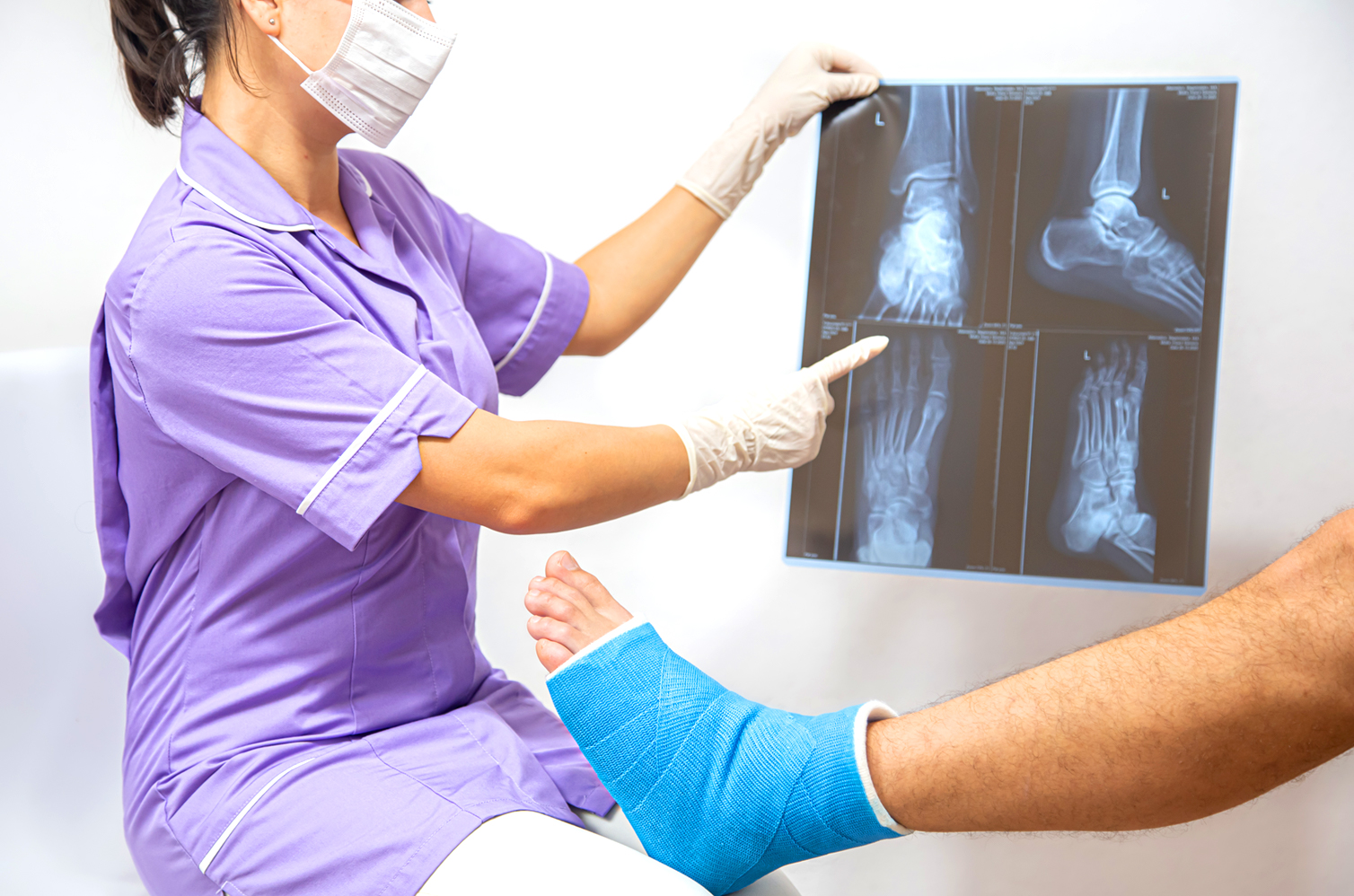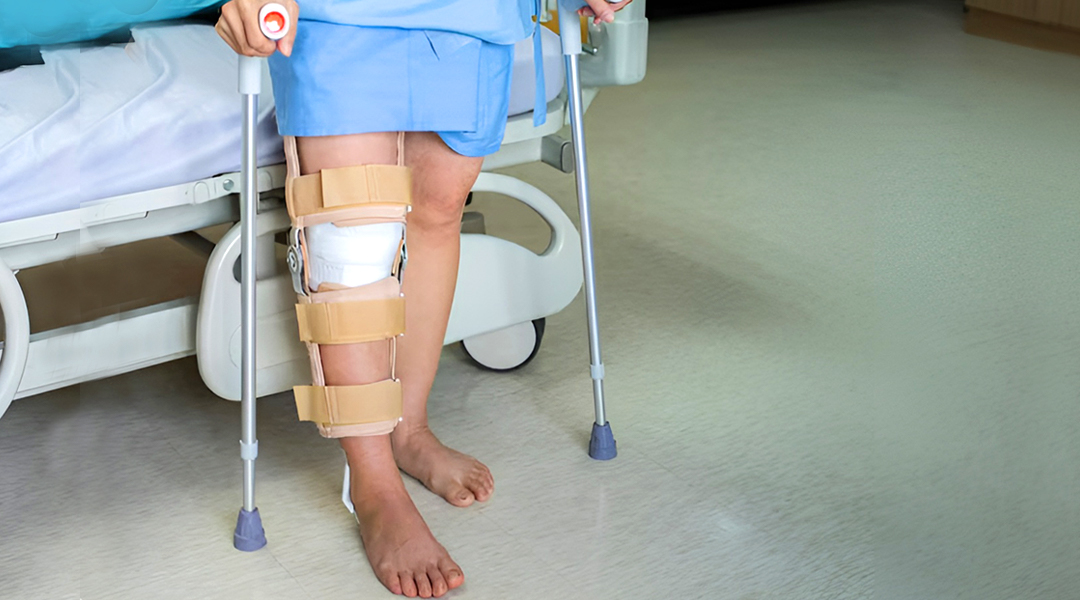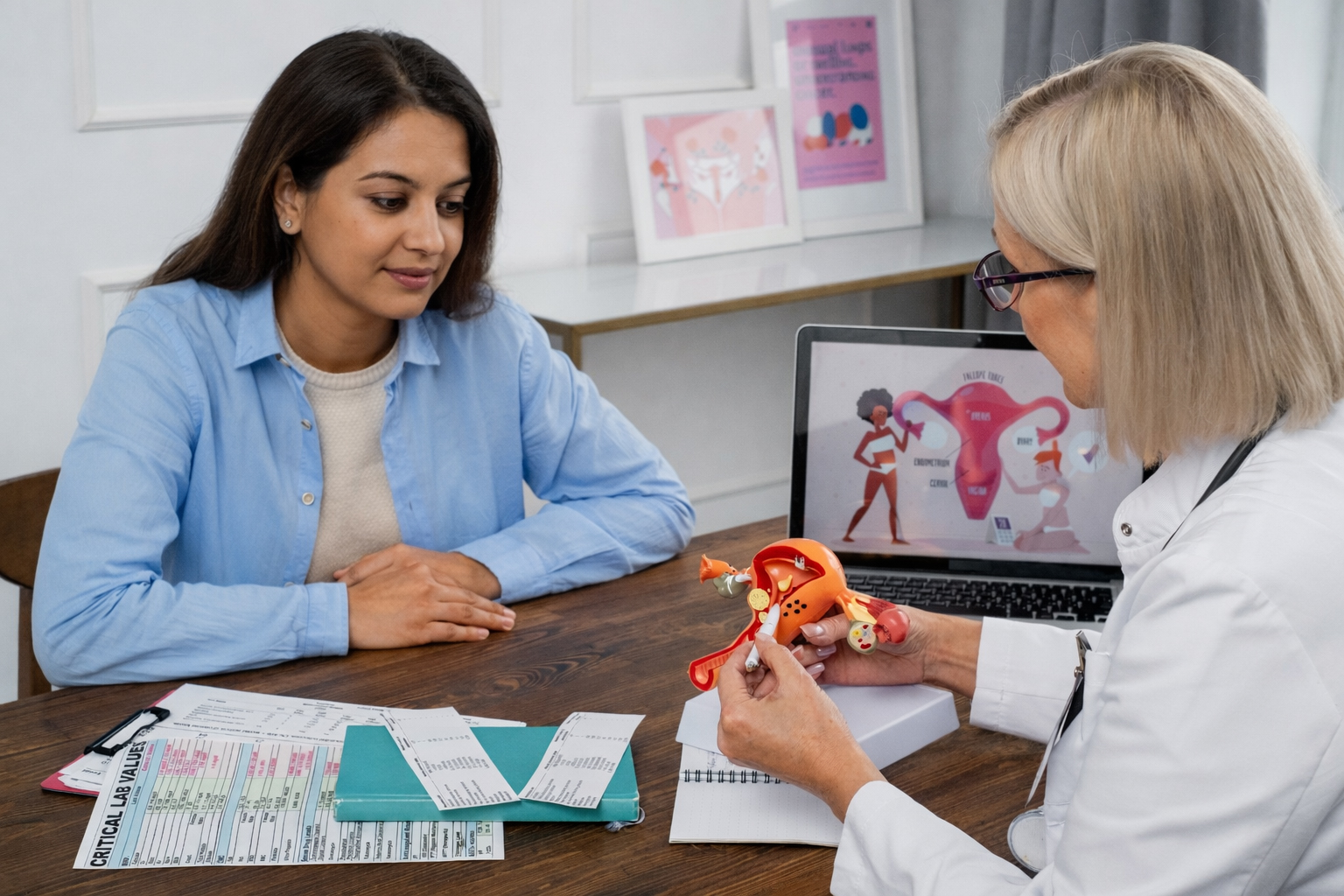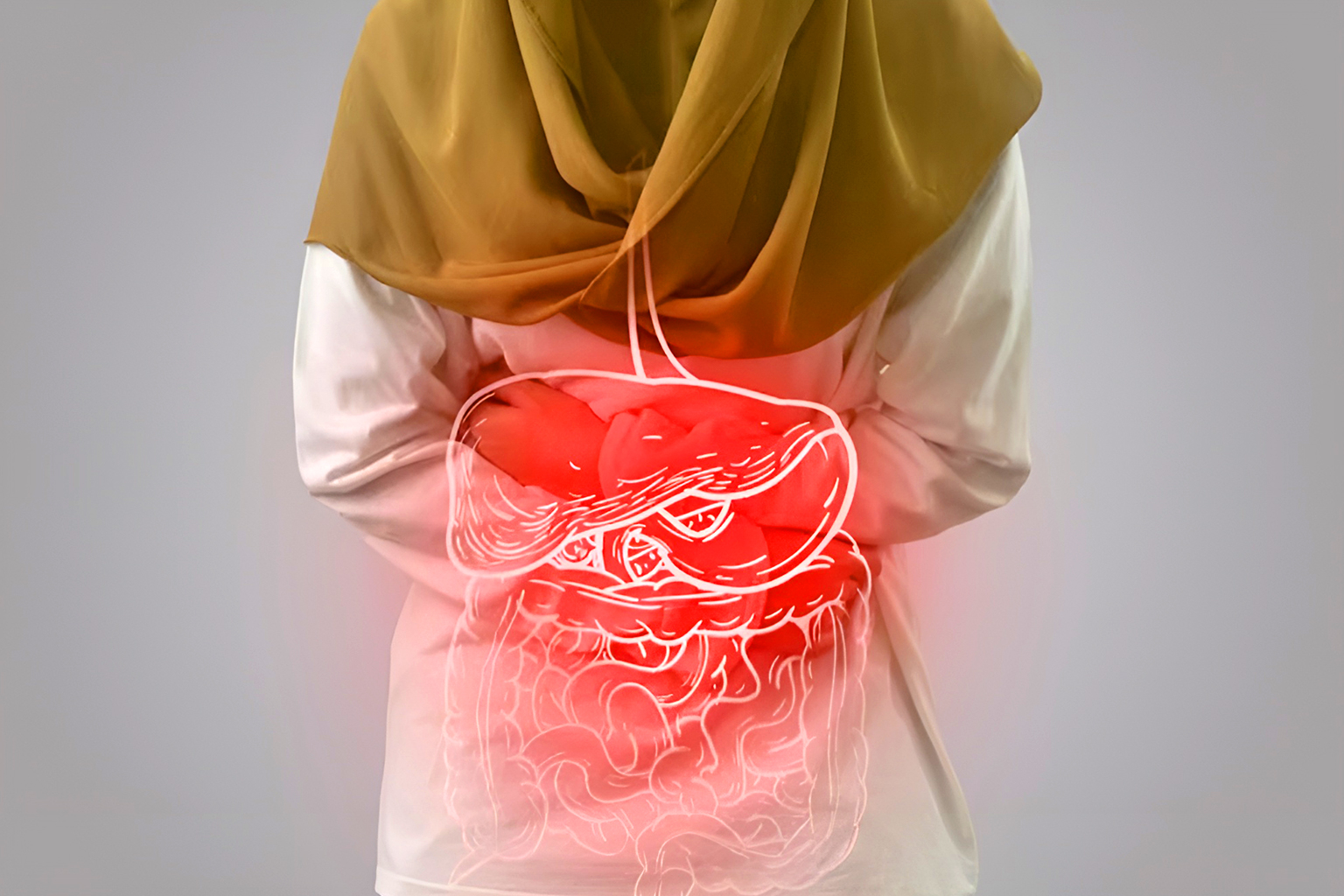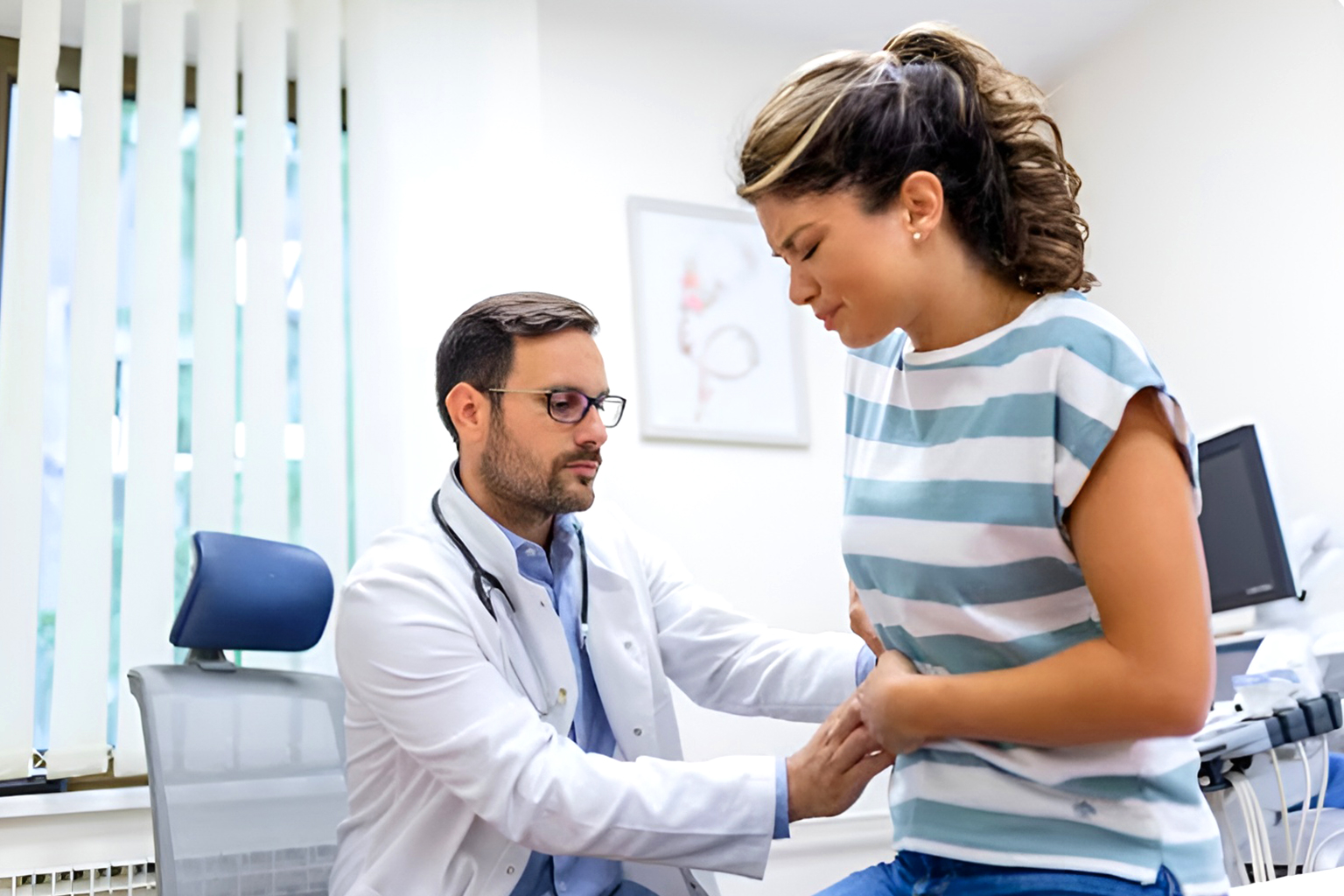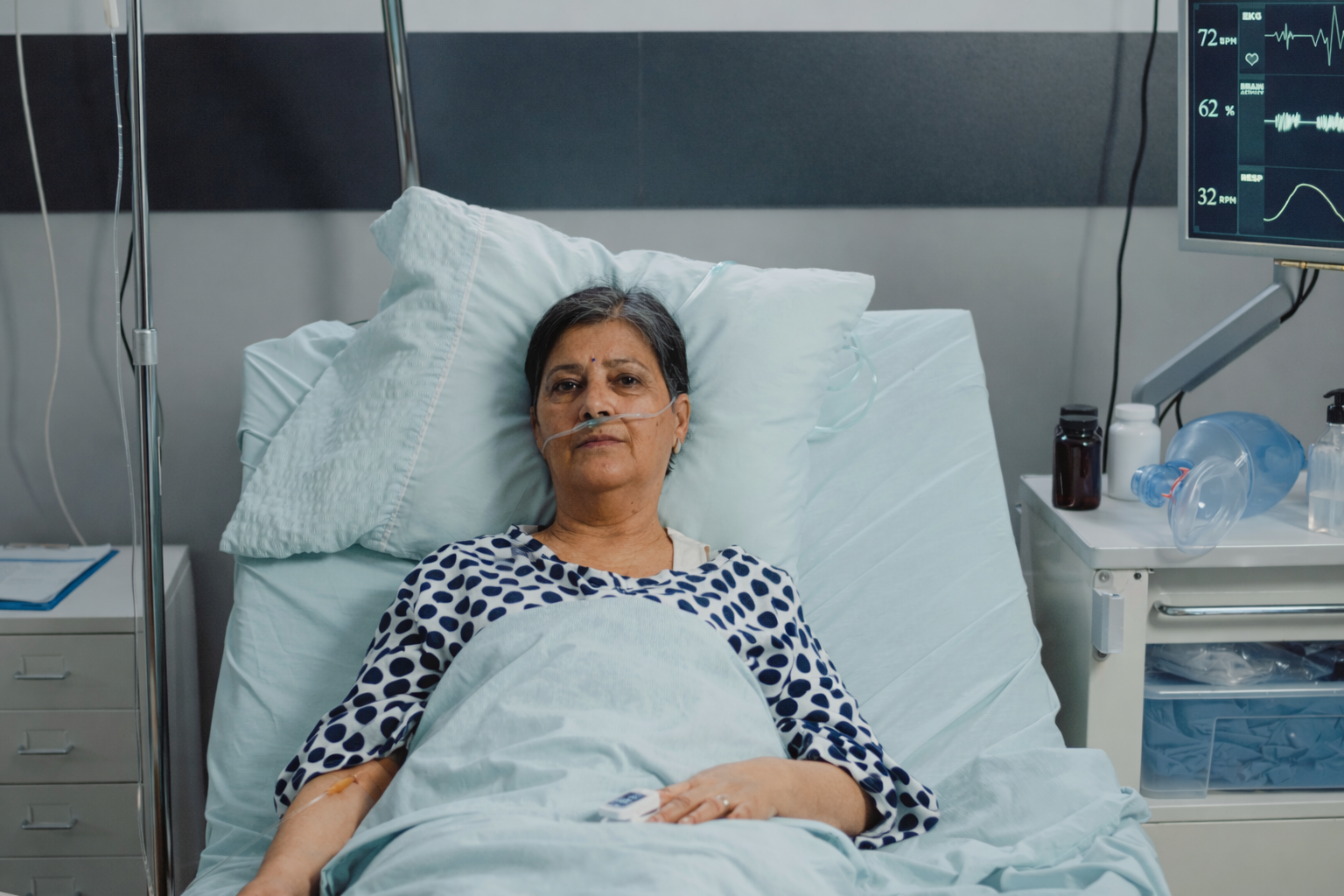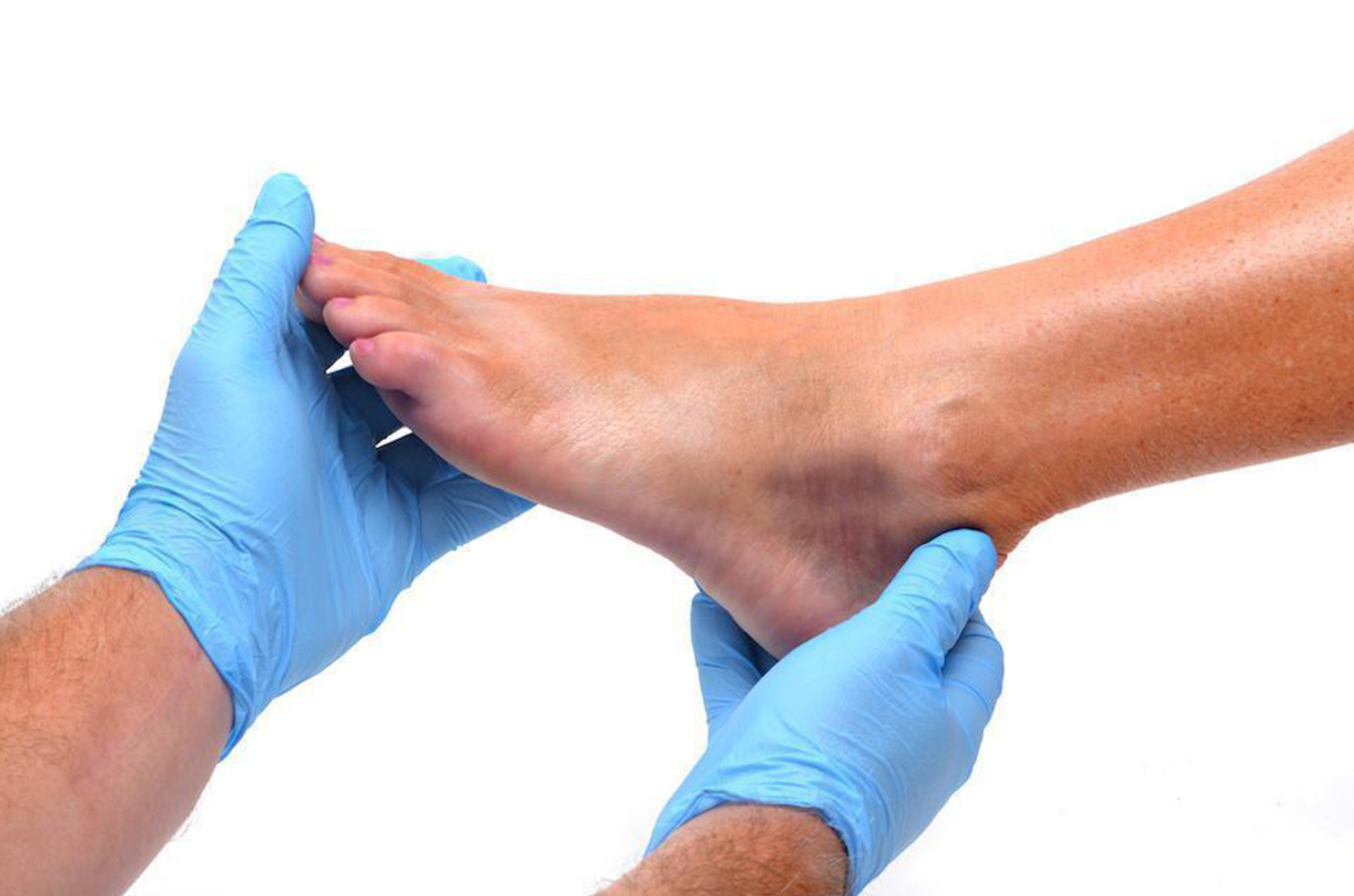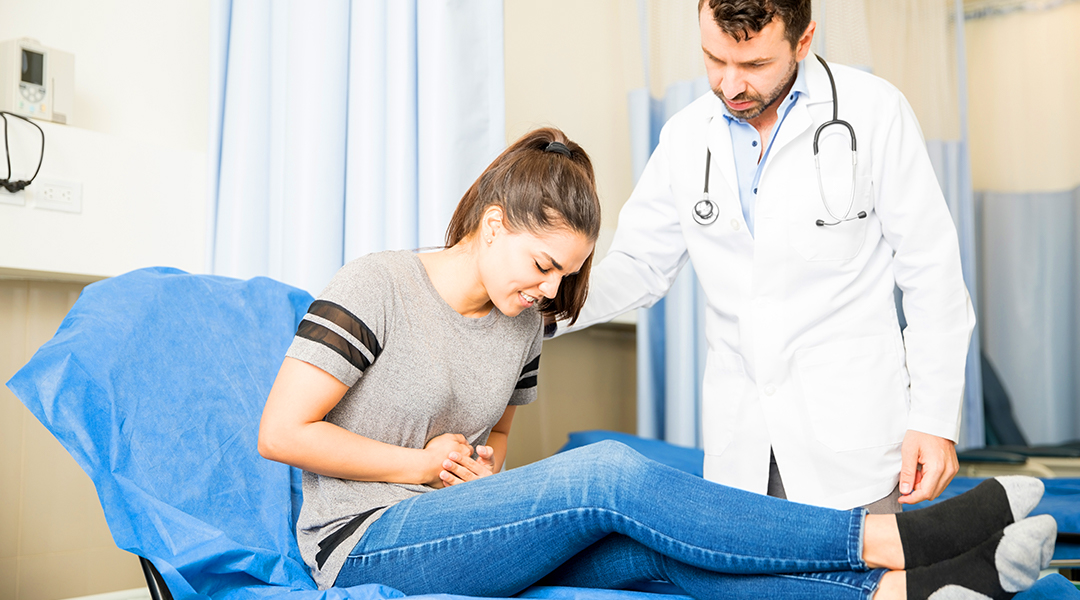At Tulips Multispeciality Hospital, under the professional care of Dr. Kishore Kumar, a notably skilled General and Laparoscopic Surgeon, we efficiently treated an 18-year-old male, Mr. Vetrivel, who presented with conventional signs and symptoms of acute appendicitis. Prompt prognosis, minimally invasive surgical management, and attentive post-operative care ensured an easy and complete healing.
Initial Presentation and Clinical Findings
Mr. Vetrivel arrived at the emergency department complaining of right-sided lower abdominal pain for a week and fever for one day. On examination, he was conscious, alert, and responsive.
Vital signs on admission:
- Temperature: 98.4 degrees Fahrenheit (fever at time of presentation)
- Pulse rate: 88 beats per minute
- Blood pressure: 110/70 mmHg
- Oxygen saturation: 99% on room air
- Weight: 67 kg
- Random blood glucose: 122 mg/dL
Systemic examination revealed tenderness in the right iliac fossa (RIF), whereas cardiovascular and respiratory findings were normal. Based on history and examination, acute appendicitis was suspected, and further evaluation confirmed the diagnosis.
What Is Acute Appendicitis and Why Early Treatment Matters
Acute appendicitis is inflammation of the appendix – a small, finger-sized sac attached to the large intestine. This typically occurs when the appendix becomes blocked due to stool, infection, or swelling, leading to bacterial growth, swelling, and pus formation.
If left untreated, the appendix may rupture, spreading infected material into the abdomen and causing peritonitis – a life-threatening condition.
Common symptoms include:
- Severe pain starts near the navel and extends to the right lower part of the abdomen.
- fever, nausea, and vomiting
- Loss of appetite and abdominal tenderness

Recognizing these signs early and seeking immediate medical help can prevent serious complications.
Diagnostic Evaluation
After the initial investigation, routine investigations and imaging were performed to confirm the diagnosis. Blood tests supported the presence of infection and inflammation. The clinical diagnosis of acute appendicitis was established, and the decision was made to perform a laparoscopic emergency appendectomy.
Given Mr. Vetrivel’s young age and otherwise stable condition, laparoscopic surgery was chosen due to its minimal invasiveness, quick recovery, and less postoperative pain compared to open surgery.
Emergency Laparoscopic Appendectomy: Step-by-Step
Pre-Operative Preparation
The patient was shifted to the operating theater of Tulip Multispeciality Hospital. Under strict aseptic precautions and spinal anesthesia, the surgical area was cleaned, painted, and draped. The patient was made to lie on the operating table.
Access and Port Placement
A 10 mm incision was made below the umbilicus, and pneumoperitoneum was created using an open technique. A laparoscope was inserted, and additional ports were placed under direct vision.
Intra-Operative Findings
On exploration, the appendix was found to be retrocecal, inflamed, and swollen. The mesoappendix was carefully dissected using a vessel sealer to control bleeding. The base of the appendix was secured with double endoloops, then divided and removed through a 10 mm port.
Closure and Dressing
After confirmation of hemostasis, the surgical field was irrigated and cleaned. All ports under sight were removed. The incisions were closed using Vicryl sutures and a skin stapler, followed by sterile dressings. The patient tolerated the procedure well and was transferred to recovery in stable condition.
Why Dr. Kishore Kumar’s Expertise Was Vital
With over 15 years of surgical experience, Dr. Kishore Kumar is an expert in gastrointestinal and laparoscopic procedures. His precision, calm decision-making ability, and patient-first philosophy ensure the highest standards of surgical safety and success.
In Mr. Vetrivel’s case, Dr. Kishore’s choice of laparoscopic appendectomy offered several advantages:
- Small incisions and minimal wounds
- reduced risk of infection
- Shorter hospital stay and faster recovery
- early return to normal routine
His team’s coordination and attention to detail helped prevent complications such as infection, abscess, or adhesions after the operation.
Post-Operative Care and Recovery
After the surgery, Mr Vetrivel was kept under strict observation in the post-operative ward. He received
- IV fluids and antibiotics to control infection
- pain management for comfort
- Drain monitoring and wound care
- early efforts to enhance recovery
He began oral fluids within 24 hours and tolerated them well. Over the next few days, his vitals remained stable, and the surgical wounds showed healthy healing. He was discharged with advice on diet, activity restrictions, and follow-up appointments.
At his follow-up visit, the dressing was clean, the staples were removed, and healing was complete. The young patient made a full recovery without any complications after the surgery
About Dr. Kishore Kumar
Dr. Kishore Kumar is a renowned General Surgeon at Tulip Multispeciality Hospital with a career spanning over 15 years. He has immense experience in treating a variety of gastrointestinal conditions, including appendicitis, ulcers, diverticulitis, colon cancer, and gallbladder stones.
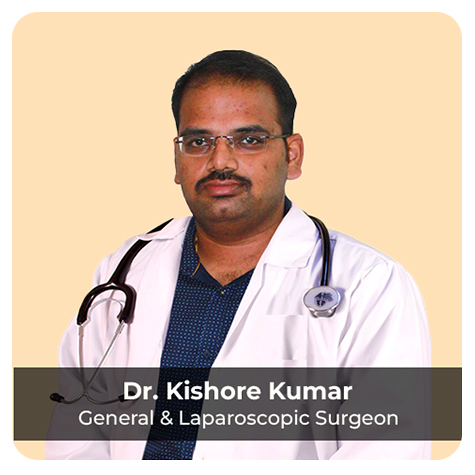
His key strengths include:
- Mastery of laparoscopic and minimally invasive techniques
- Deep understanding of stomach and digestive system disorders
- Focus on patient comfort, safety, and education
Dr. Kishore believes that surgical care is not just about operations – it is about guiding patients from anxiety to reassurance. He combines cutting-edge technology with human compassion, ensuring that each patient receives personalized attention and transparent care.
Diagnostic Tools and Tests at Tulips
At Tulip Multispeciality Hospital, the diagnosis and management of appendicitis is supported by the following:
- Abdominal ultrasound – to detect swelling or fluid collections
- CT scan – for detailed imaging when the diagnosis is uncertain
- Blood tests – to assess infection and inflammation
- Physical examination – to detect tenderness and rule out other causes
This integrated diagnostic approach enables early detection and timely surgical management.
Risk Factors and When to Seek Medical Help
Appendicitis can occur at any age, but is more common in teenagers and young adults. Risk factors include:
- Blockage of the lumen of the appendix by stool or infection
- gastrointestinal infections
- Family history of appendicitis
Get immediate medical help if you experience:
- Persistent pain in the right lower abdomen
- fever, nausea, or vomiting
- pain that increases with movement or coughing
Delay can lead to rupture and life-threatening peritonitis.
Additional Information About Acute Appendicitis
1. Lesser-Known Causes
Apart from fecolith blockage, appendicitis can also be caused by:
- Parasitic infections (such as Enterobius or Ascaris)
- viral or bacterial gastroenteritis
- Crohn’s disease or inflammatory bowel disease
- Rarely, foreign objects or fruit seeds have been swallowed
2. Lifestyle & Diet Factors
A low-fiber diet and dehydration can increase the risk.
A fiber-rich diet with plenty of fluids helps maintain gut health and may reduce the chance of appendicitis.
3. Conditions That Mimic Appendicitis
Some conditions can resemble appendicitis, such as:
- Ovarian cyst or torsion (in women)
- urinary tract infection or kidney stones
- Gastroenteritis or mesenteric adenitis (especially in children)
4. Risks of Delayed Treatment
Delay in treatment may lead to the following consequences:
- appendix rupture
- Peritonitis and Sepsis
- Abscess formation and adhesions after surgery
5. Advances in Treatment
Laparoscopic and robotic appendectomies ensure faster recovery and minimal scarring.
Single-incision techniques provide better cosmetic results.
Early diagnosis is important to prevent complications.
Tulips Multispeciality Hospital: Excellence in Surgical Care
At Tulip, patient safety and comfort are our top priority. Our emergency and surgical departments are equipped with state-of-the-art laparoscopic facilities, 24/7 medical support,t and dedicated nursing staff. We ensure that each patient receives personalized treatment – from diagnosis to discharge – in a caring, professional environment.
Our commitment to minimally invasive surgery means shorter hospital stays, faster recoveries, and improved quality of life for patients like Mr. Vetrivel.
Conclusion
The successful treatment of Mr. Vetrivel’s acute appendicitis in the skilled hands of Dr. Kishore Kumar at Tulip Multispeciality Hospital demonstrates the power of timely diagnosis and expert surgical care.
What started as persistent abdominal pain was quickly recognized and managed before complications arose.
Thanks to advanced laparoscopic techniques and compassionate medical care, the patient made a full recovery and resumed normal life within a few days.
If you or someone you know suddenly experiences pain in the lower right side of the abdomen, fever or nausea, do not delay. Visit Tulip Multispeciality Hospital for around-the-clock emergency surgical care – where expertise meets compassion, and each patient gets the best chance for a rapid and safe recovery.
Frequently Asked Questions (FAQ)
- How do I know if my abdominal pain is due to appendicitis?
Appendicitis pain often begins around the belly button and then shifts to the lower right side of the abdomen. It typically worsens with movement, coughing, or deep breathing. If the pain is accompanied by fever, nausea, or loss of appetite, seek medical attention immediately — delaying treatment can lead to rupture. - Is laparoscopic appendectomy better than open surgery?
Yes. Laparoscopic appendectomy is minimally invasive, requires only small incisions, and offers faster recovery, less post-operative pain, and minimal scarring. It also allows quicker return to daily activities compared to traditional open surgery. - How long does it take to recover after a laparoscopic appendectomy?
Most patients can walk within a few hours after surgery and resume light activities in 3–5 days. Full recovery usually occurs within 1–2 weeks, depending on the patient’s health and post-surgical care. - Can the appendix burst before I reach the hospital?
Yes, if treatment is delayed for more than 24–48 hours after symptoms begin, the appendix can rupture. This leads to infection spreading throughout the abdomen (peritonitis), which is life-threatening. That’s why early diagnosis and surgery are critical. - What precautions should I take after an appendectomy?
Avoid lifting heavy weights, strenuous exercise, and eating oily or spicy foods for at least two weeks. Keep the surgical site clean and dry, attend follow-up visits as advised by your doctor, and report any fever, redness, or swelling at the wound site immediately.

